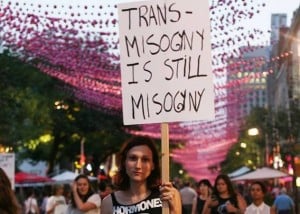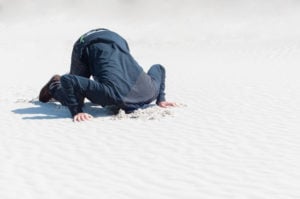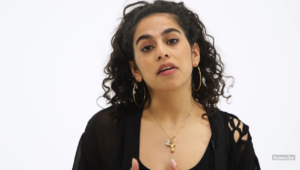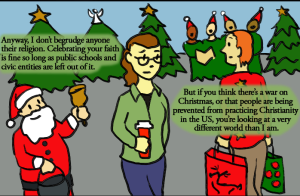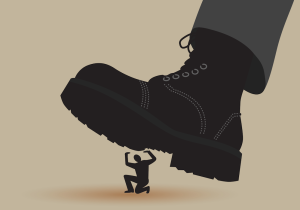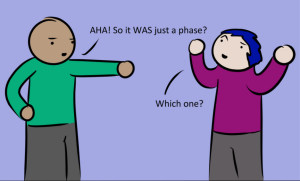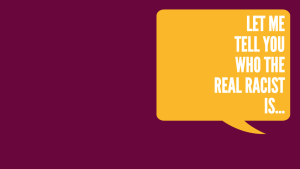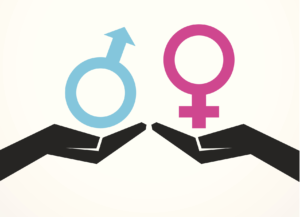Originally published on The Establishment and republished here with permission.
(Content Warning: suicidal ideation)
This past September marked my one-year anniversary working for the National Suicide Prevention Lifeline and other programs at the Mental Health Association of New York City (MHA-NYC).
As director of communications, I spend my time educating the public, encouraging action to help others, and spreading the word about available mental health resources.
I’ve had the privilege of meeting brilliant people and creating work I feel proud and passionate about. And though I’ve worked in real estate, television, local government, and as a tutor, this is the first job I’ve had that I can truly say I’ve loved.
But I’ve also been haunted by my hypocrisy and fear.
Until these words are public, only a handful of people in my life – including none of my work colleagues or my own family – know that four years ago, I was diagnosed with recurrent severe depression.
Even fewer people know that I take two antidepressants a day, and that my bathroom cabinet is jammed with vials of discarded SSRIs and sleeping pills.
There have been months that I’ve sat at my desk at a mental health nonprofit promoting public health and stories of hope and recovery, while battling back the voice in my head that reminds me that I should’ve killed myself years ago.
The majority of my first-generation Asian-American family works in the medical field, though none work in mental health except me.
We didn’t have the phrase mental health in our vocabulary growing up. Life, especially life in a foreign country, was understood to be an obstacle-ridden prospect.
My parents are immigrants who left lives of hardship in the Philippines and built comfortable lives for their children in the United States.
Growing up, my sister and I were told stories about our family history, about how poor my parents and grandparents had been, how they had worked hard to gain and lose and regain ground. These were battles of upward mobility, hard-won through a combination of education, resilience, and God’s grace.
Our accomplishments were touted, disappointments infrequently discussed.
If someone in our circle was rumored to have experienced trauma or be in therapy, the news was shared quietly and with some pity – in the same tone you might use to deliberate an extramarital affair or a death.
When I informed my parents that I’d gotten this new job at MHA-NYC, they expressed trepidation at the subject matter. Even now, when I tell relatives where I work, they fall silent.
There’s also a widespread tendency to stigmatize and discriminate against people with mental illness in developing Asian countries.
This iteration of mental health stigmatization is rooted in skepticism toward (and a lack of access to) mental health services, strong social disapproval of families with a history of mental illness, and the belief that individuals with mental health issues are dangerous.
While there is a national policy on mental health in the Philippines, most of the mental health budget goes toward maintaining mental hospitals.
According to a World Health Organization report, seclusion, involuntary admissions, and the use of restraints are common in Philippine facilities, and primary health care staff in the Philippines don’t have adequate mental health training.
So what does it mean when you, the child of generations of fortitude and sacrifice, are pinned to your bed by lethargy in your Manhattan apartment, counting hours by how much light comes through the window?
What does it mean when you roam the streets of your college town day and night, trying to outpace the voice in your head telling you you’re worthless and should just quit now?
I grew up in the most privileged environment our family had ever experienced.
I had excellent grades. I was the first person in our family to do a study abroad program in Europe. I was a “good girl,” if often considered too bossy, loud, and brash by my relatives.
By all measurements, I should’ve been fine. Instead, I was regularly felled by a force I couldn’t name. I felt like a failure, undeserving and ungrateful of everything that had come before me.
Even after a year of working alongside clinicians and experts, the idea of emotional wellness and self-care as necessary to a good and healthy life still sometimes feels like a luxurious byproduct of the comfortable existence my parents fought for me to have.
I didn’t get help until I was almost 26 years old. I went to the appointment alone and in secret. My first words to my therapist were, “I have nothing to be sad about, but…”
MHA-NYC and the National Suicide Prevention Lifeline value personal stories and experience in the belief that people who’ve been through hell can provide needed perspective and help others who are struggling.
I’ve been lucky to listen to and work with youth, LGBTQIA+ and First Nations individuals, military veterans, suicide attempt survivors, loss survivors, and more.
But so far, in over a year of doing this work, I’ve rarely encountered Asian-Americans who aren’t participating strictly as providers or professionals in the field.
At meetings of the Lifeline’s Consumer Survivor Committee, an advisory committee comprised of suicide attempt and loss survivors, I’ve sometimes found myself as the only Asian-American at the table – and only as a staff member.
And yet, I know I’m not actually alone. Suicide is the second leading cause of death for Asian-Americans between the ages of 15 and 34, consistent with the national data.
But US-born Asian-American women have a higher lifetime rate of suicidal thoughts than that of the general US population – that’s 15.9% of Asian-American women, as compared to 13.5% of the general population.
Suicide death rates are 30% higher for Asian-American women between 15 and 24 than they are for white women in the same age range.
Asian-Americans are also less likely to seek help for their emotional or mental health problems than white Americans, according to data from the American Psychological Association.
So where are our stories? Where are the thousands like me, the other Asian-Americans choking under the weight of a struggle that feels reserved for other groups of people?
I know why I didn’t speak, even after I’d absolved myself of familial guilt. I was desperate to prove to myself that I was good at my job because of my experience and my intelligence, that my personal history played no part at all.
On the contrary, I hoped to prove that I’d escaped that history, had shed it like an old skin. But instead, I’ve carried it with me.
At meetings, at conferences and summits, I’ve listened to the experiences of others, unwilling to speak myself. I dread moments that might give me away, or provoke reactions beyond how I believe a clear-eyed professional should behave.
When workshops describe my symptoms, I slink down in my seat, newly aware of how bright the lights are, and praying that none of the mental health experts in the room recognize me in the PowerPoint’s bullets.
I work with others to craft and share messages and stories of hope and recovery for the public, but don’t keep any for myself. I recognize bits and pieces of my story in others – the same thoughts there, a similar note here.
But rarely have I felt that moment of clarifying recognition that seeing yourself in another can create. When I do, those moments are life preservers.
I’m lucky to have started my job at a time when the growing numbers of voices sharing their stories are changing the landscape, breaking down the ideas of what wellness looks like.
When you recognize your story in another, it’s possible to realize you’re not entirely alone. Those moments of recognition can give you hope and staying power.
I wish that I’d experienced more of those moments during the times when I was fighting to survive, and explaining how numb and lost I felt was an isolating, impossible task made more isolating and impossible by also having to explain the world I inhabited as an Asian-American woman.
So here I am, speaking and hoping others like me might recognize the story and add their own.
I’m tired of living the hypocrisy of encouraging people to stand up, while being too afraid to stand myself. I’m tired of hiding.
[do_widget id=’text-101′]
Frances Gonzalez is the Communications Director for a national, mental health nonprofit. Frances writes stuff and proofs for accidental West Wing quotes and orders Seamless a lot.
Search our 3000+ articles!
Read our articles about:
Our online racial justice training
Used by hundreds of universities, non-profits, and businesses.
Click to learn more






